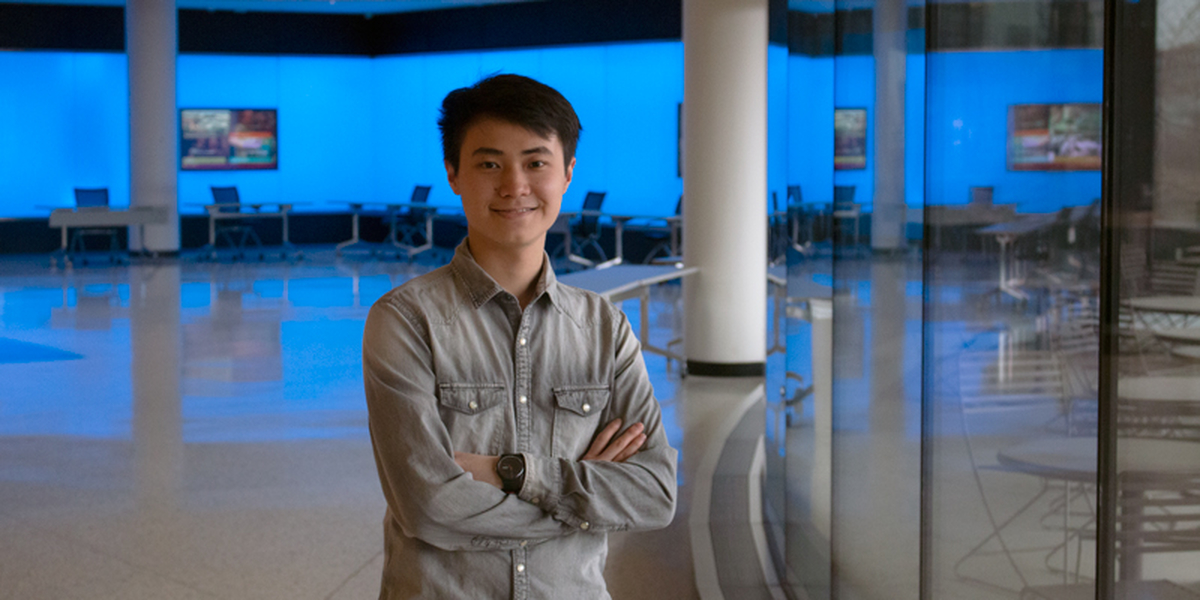
Xianyi Xiong is no stranger to CBS. Now a researcher in the Harcombe lab, he got his undergraduate degree in microbiology from the College in 2020 and later finished his M.S. in Microbial Engineering in 2022. After two years conducting research on campus, he looks to take his interests in the microbiome to MIT through its Microbiology Ph.D. program.
What drew you to your role in the Harcombe lab?
I started the position immediately after I graduated from a M.S. program in Microbial Engineering also in Dr. Harcombe's group. I decided to stay because I want to continue my previous research exploring single-cell approaches and systems biology/modeling approaches to study how bacteria withstand perturbations.
What graduate program are you planning to pursue? What interests you in that area of study?
I originally applied to the Gates Cambridge Scholarship because I was drawn to the vibrant Gates Scholars community and the Ph.D. program in Biological Science (MRC Toxicology) at the University of Cambridge where researchers from all sorts of areas can benefit from interdisciplinary discussions. Unfortunately, I eventually decided to decline the Gates Cambridge Scholarship opportunity and the Ph.D. program offer at University of Cambridge due to family issues. Com g Instead, I decided to accept my offer to join MIT's Microbiology Ph.D. program. I wish to continue studying the systems biology and microbial ecology of host-microbiome interactions, continuing to use computational and high-throughput experimental approaches to decipher how to engineer the human microbiome to improve health.
What are some of the things you've learned both as a student and on staff at the U of M that will help you in your graduate work?
The most important lesson I learned at the U of MN is that being a leader means to build psychological safety in people I work with to help them charge into the unknown and make meaning out of it. As a first-generation international student from China tapping into a different country and culture, I was very lucky in that many of my mentors really did an amazing job encouraging me to pursue my dreams and supporting what I do.
Longer-term, what are you hoping to do with your work after completing your graduate program?
I wish to pursue a professorship to continue performing scientific research about the human-associated microbiome, and spin off companies commercializing discoveries from my research group. I am interested in dedicating my life to this area because I believe that within it hides great potential for improving human health, as well as understanding how we evolve as a species.
Anything else you'd like to share?
I would like to use this opportunity to thank my faculty mentors over the many years I've been here and I cannot achieve anything without them. They are the beacons of light to a first-generation college student from a different country and language background. I would like to specifically thank my wife, Haining Zhou, and my mentors Drs. Will Harcombe, Kirsten Jamsen, Hans Othmer, Abby Johnson, Christopher Staley, Jasmine Tang, Katie Levin and Mike Sadowsky.